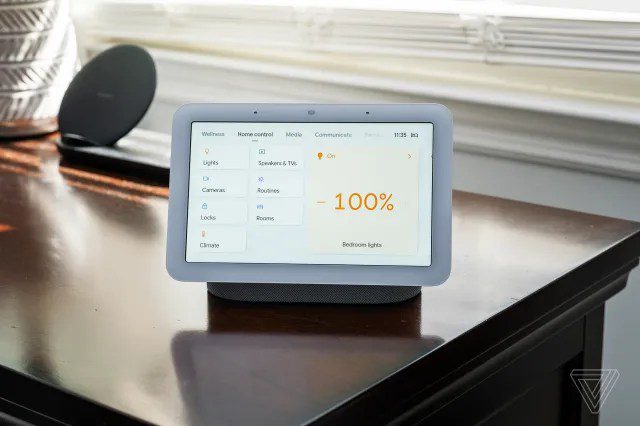
google says its confusing gemini home rollout Google’s rollout of its new Gemini voice assistant for smart home devices has sparked a mix of optimism and concern among users.
google says its confusing gemini home rollout
Introduction to Gemini
Gemini is Google’s latest smart home voice assistant, designed to enhance the functionality of its smart displays and speakers. The rollout began two weeks ago, coinciding with a blog post celebrating the anniversary of the Google Home platform. In this post, Google expressed confidence in the new assistant’s capabilities, even quoting a user who remarked, “My Google Home just got upgraded with Gemini. It’s actually useful now beyond asking for today’s weather.” This statement, while positive, hints at a broader context of user expectations and experiences.
Initial User Feedback
Despite the optimistic tone of Google’s announcement, user feedback has revealed some significant issues. The FAQ section of the blog post highlighted two of the most frequently reported problems:
- Misunderstanding Queries: Users have reported that Gemini struggles to accurately interpret commands. For instance, one user attempted to set an alarm for 5 PM, but the assistant mistakenly set it for 5 AM.
- Device Control Issues: Many users have expressed frustration with Gemini’s inability to effectively control connected devices, such as lights and locks. This functionality is crucial for any voice assistant operating within a smart home environment.
These issues raise concerns about the assistant’s reliability, especially since Gemini is intended to be the default voice assistant on all Google Home smart speakers and displays. The ability to understand user commands and control smart devices are fundamental requirements for a voice assistant, and any shortcomings in these areas could hinder user adoption.
Gemini’s Features and Overhaul
The launch of Gemini is part of a broader overhaul of the Google Home ecosystem. This includes the introduction of a new Ask Home chatbot interface within the Google Home app, which allows users to interact with the app using natural language text commands. Additionally, Gemini’s capabilities extend to Google’s Nest security cameras, enabling them to generate descriptions of their surroundings and deliver daily Home Briefs to users.
These features were rolled out in early October, with some requiring a subscription for full access. However, obtaining the Gemini voice assistant involves navigating a complicated Early Access sign-up process that began on October 28th. This process is distinct from the Public Preview program, leaving many users in a state of uncertainty as they await access.
Slow Rollout and User Accessibility
In a manner reminiscent of Amazon’s approach with Alexa Plus, the rollout of Gemini has been gradual. Reports indicate that many users, including those at The Verge, have yet to receive the update. Discussions on platforms like the Google Home subreddit suggest that the rollout has not reached a significant portion of the user base. Google has indicated that a broader launch may not occur until spring at the earliest, coinciding with the anticipated release of a new Google Home smart speaker.
This slow rollout raises questions about the assistant’s readiness for widespread use. While Google has touted Gemini’s advanced capabilities, the lack of accessibility for many users may hinder its adoption and overall effectiveness.
Expected Improvements with Gemini
When users do gain access to Gemini, they can expect a voice assistant that is designed to be more conversational and context-aware. A preview conducted by The Verge indicated that Gemini could understand natural language better than its predecessors. For instance, users should be able to issue multiple commands in a single phrase, such as, “Hey Google, turn on the lights, except in the bedroom, turn on the TV, lock the front door, and make it warmer in here.”
However, early reports from users on Reddit have suggested that this feature may not be functioning as intended. Some users have noted that the ability to daisy-chain commands is not working reliably, raising concerns that Gemini may not be delivering on its promises. This is particularly troubling given that a limited version of this feature was already available with the previous Google Assistant, suggesting that Gemini may not have improved upon its predecessor in this regard.
The Challenges of Smart Home Integration
The difficulties encountered during the rollout of Gemini may be indicative of broader challenges faced by voice assistants in the smart home landscape. As generative AI and smart home technology evolve, the integration of these systems has proven to be complex. Traditional voice assistants, including the original Google Assistant and Amazon’s Alexa, were built on a command-and-control framework. This model allowed for predictable responses to specific commands.
In contrast, the new generation of AI-powered voice assistants, such as Gemini, relies on large language models (LLMs) that prioritize conversational interaction and contextual understanding. While this shift has the potential to make interactions more natural, it also introduces a greater margin for error. Anish Kattukaran, a representative from Google Home, noted in an interview, “LLMs are great at being creative, but not so good at doing the same thing over and over again with the same predictable output.”
This inherent challenge highlights the ongoing struggle that both Amazon and Google face as they attempt to refine their voice assistants for smart home applications. The transition from a rigid command structure to a more fluid conversational model requires significant adjustments in technology and user expectations.
Future Implications for Smart Home Technology
The rollout of Gemini and its associated features could have far-reaching implications for the future of smart home technology. As users become increasingly reliant on voice assistants for managing their homes, the performance and reliability of these systems will be critical. If Gemini fails to meet user expectations, it could lead to a decline in trust and usage of Google’s smart home products.
Moreover, the challenges faced by Gemini may serve as a cautionary tale for other tech companies venturing into the realm of generative AI and smart home integration. The lessons learned from this rollout could inform future developments and strategies, emphasizing the need for thorough testing and user feedback before launching new features.
Conclusion
The initial rollout of Google’s Gemini voice assistant has generated a mix of excitement and apprehension among users. While the potential for a more conversational and context-aware assistant is promising, the current issues with command interpretation and device control raise significant concerns. As Google continues to refine Gemini and expand its availability, the company will need to address these challenges to ensure a successful integration into users’ smart homes.
For those who have already gained access to Gemini, user experiences will be crucial in shaping the future of the assistant. Feedback from early adopters will provide valuable insights into the strengths and weaknesses of the system, guiding future updates and improvements. As the smart home landscape continues to evolve, the performance of Gemini will play a pivotal role in determining Google’s position within this competitive market.
Source: Original report
Was this helpful?
Last Modified: November 11, 2025 at 1:36 am
1 views














